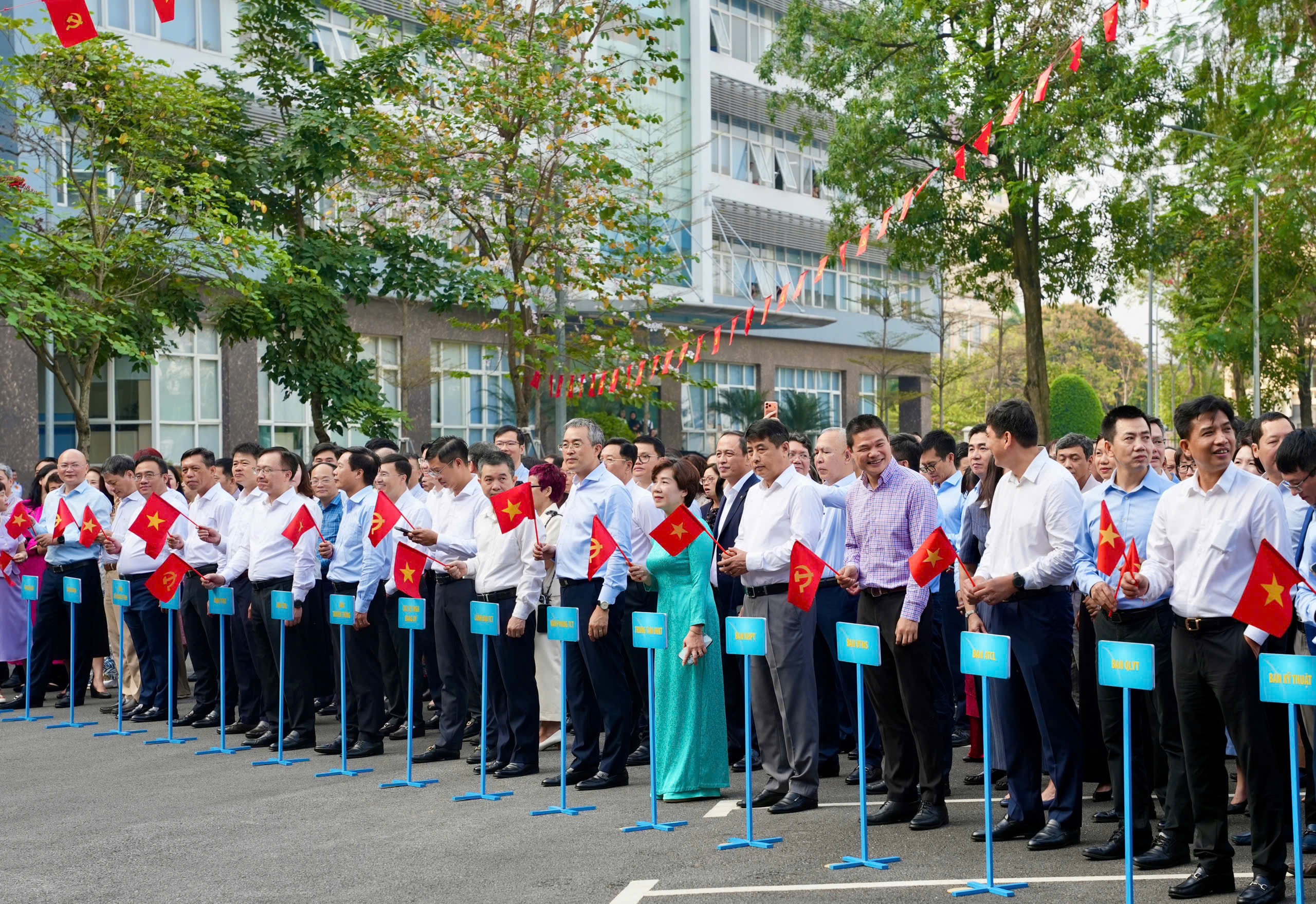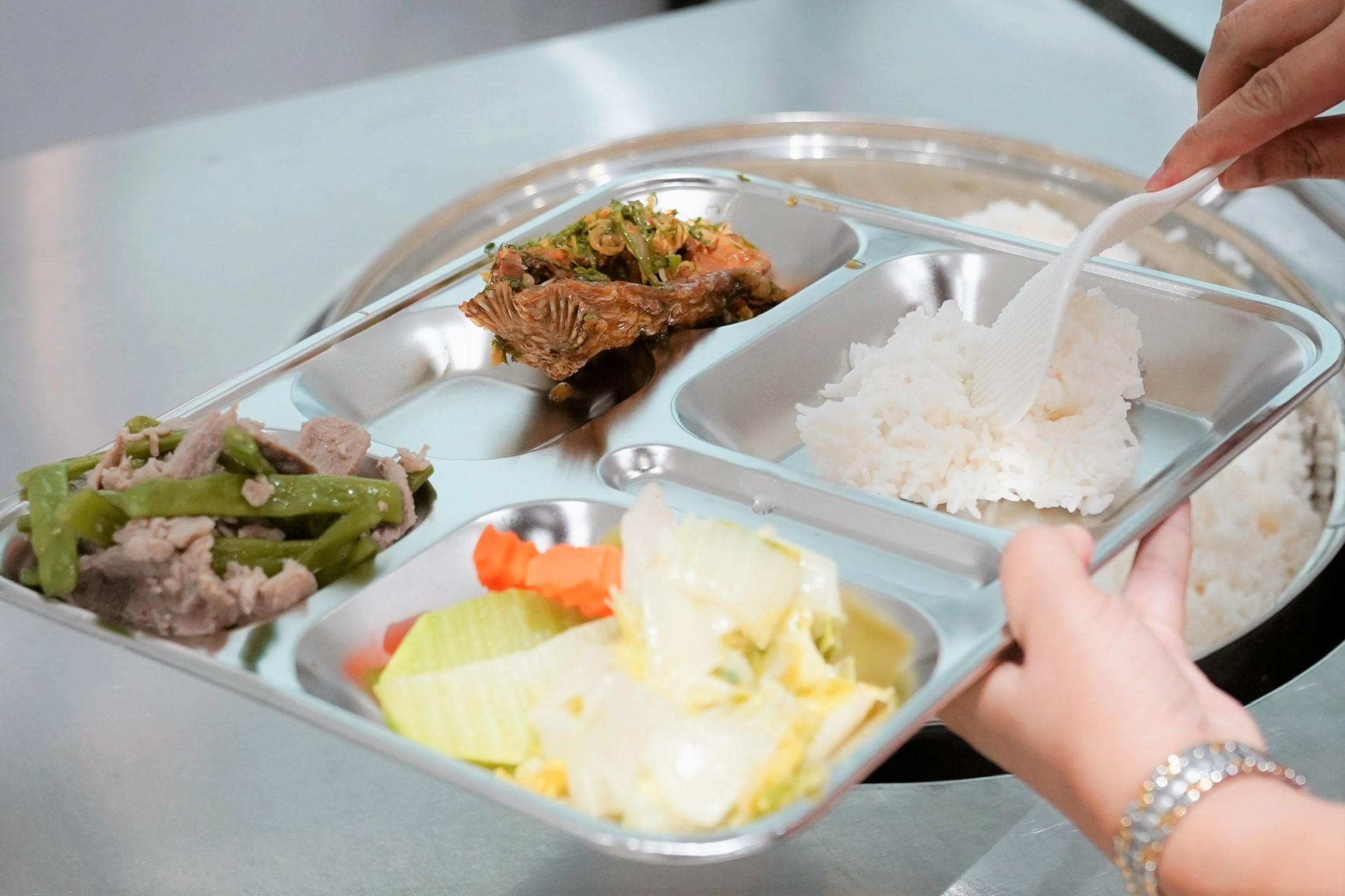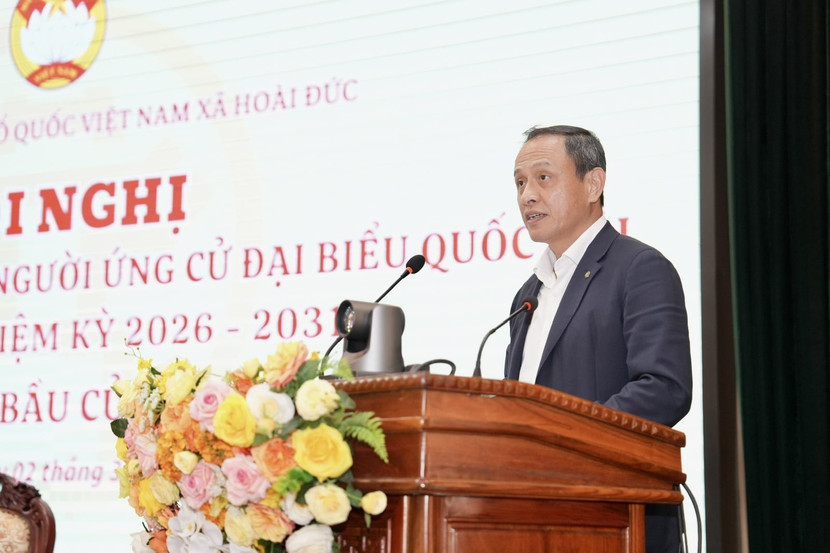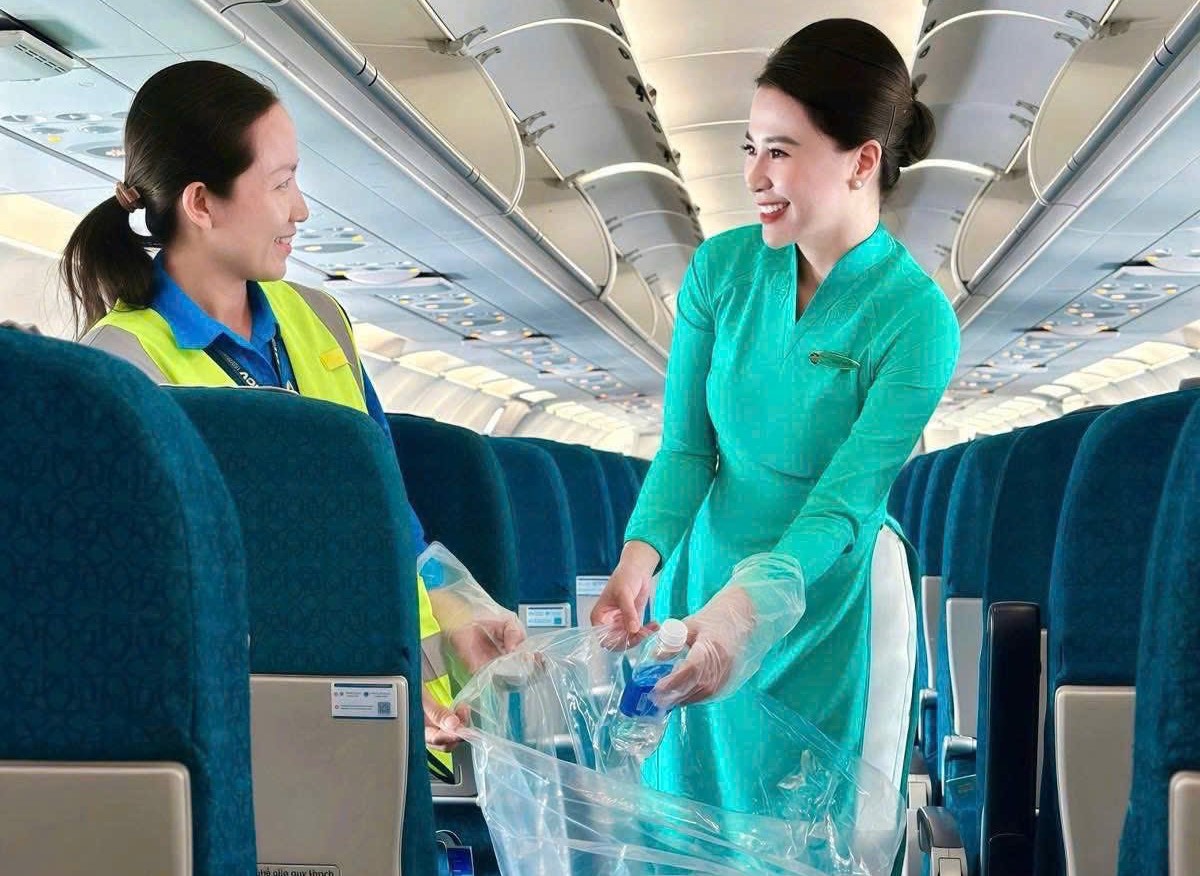Hello, can you share what led you to become a pilot?
I was born in Quang Tri, a poor Central province but famous for studiousness. When I was small, I always fancied the feeling of flying and controlling machines. In the late 1960s and early 1970s, I decided to become a pilot. After years of continuous study, in 1972, I officially became a pilot and worked for American aviation. After 43 years of mastering the skies in the US, I retired in 2015. For the past four years, I have gone back to Vietnam and provided training to young pilots of VNA.
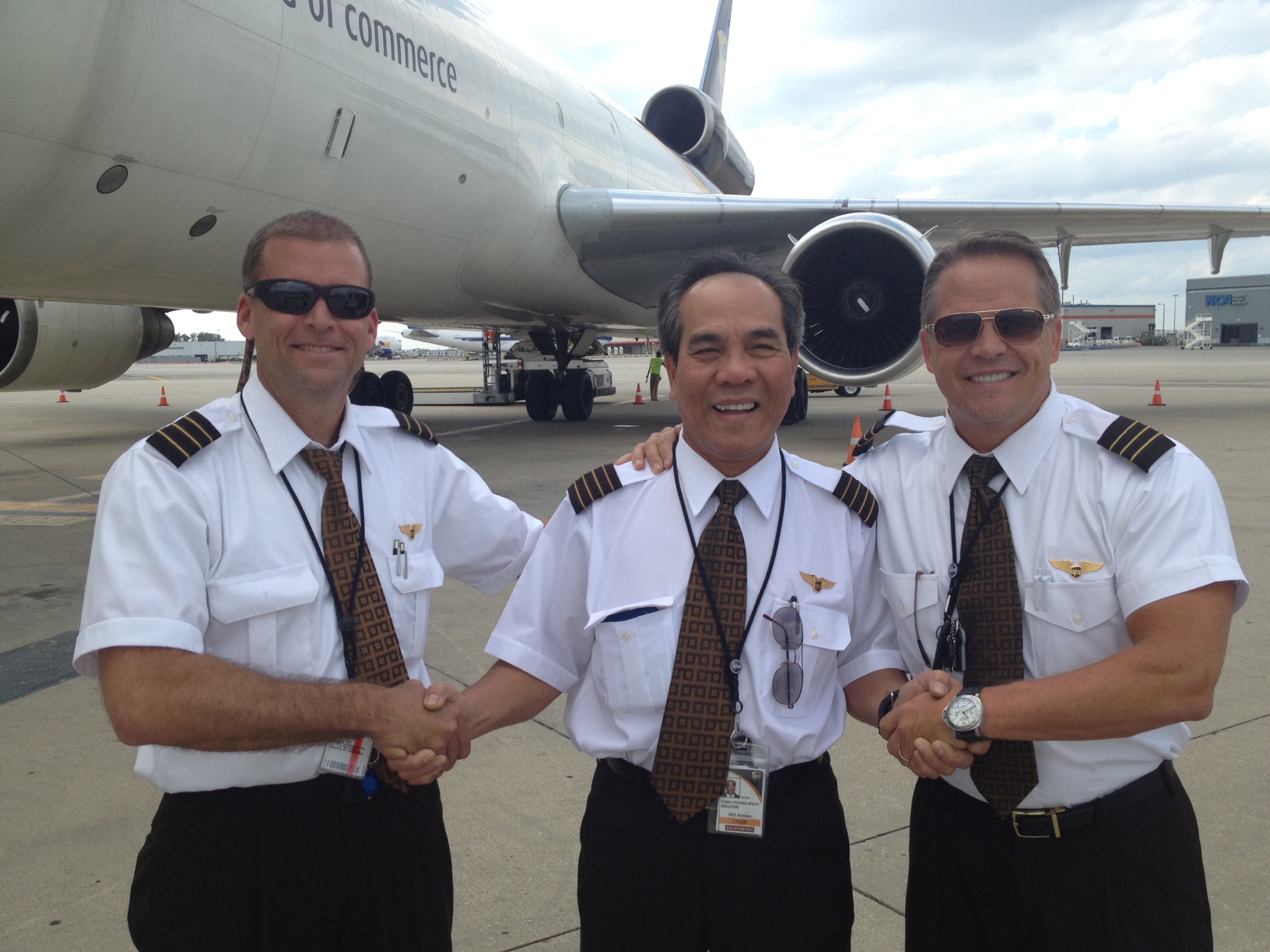
Captain Chau Phong – Pilot teacher of Bay Viet school (Cre: Chau Phong).
Can you share your best memory throughout more than four decades working as a pilot?
There are so many that I cannot name it all. On September 11, 2001, I was flying an aircraft from Germany to Philadelphia, USA. When we approached the airport, we were given the notice that all aircraft must change direction and were not allowed to fly into the US airspace. For two days, absolutely no flights were permitted and no aircraft were allowed to take off or land in the US. No one knew what was going on, so I and the crew tried to reassure passengers while managing to handle the situation. Then, I turned the plane back and flew it around the Atlantic Ocean, looking for a destination to land. When I noticed Iceland on the right, I asked for permission for landing to wait for the ban to be lifted so we could fly back to the US.
In Iceland, we learned from the news that 19 Al-Qaeda hijackers had stolen two passenger planes and plunged them into the 110-story Twin Towers at the World Trade Center in Manhattan (New York). The two towers collapsed and nearly 2,977 people were killed. The terrorist group also hijacked two other aircraft, one crashed into the Pentagon while the other crashed into a field near the town of Shanksville, Pennsylvania. No passengers and crew members survived. When the twin towers collapsed, thousands of New York firefighters and policemen broke into the scene to rescue victims despite the danger. Of the 2,977 people killed in the terrorist act, 343 were New York firefighters. Such an event is unforgettable to me, it is one of the darkest moments in US history.
Starting as a pilot, you then took on the job of teaching. What was your feeling when you first became a teacher?
I started teaching US Air Force students in the 1980s and 1990s. Being able to share about how to control the aircraft and how to master the sky is always exciting to me, whether it is the first time or the last time.
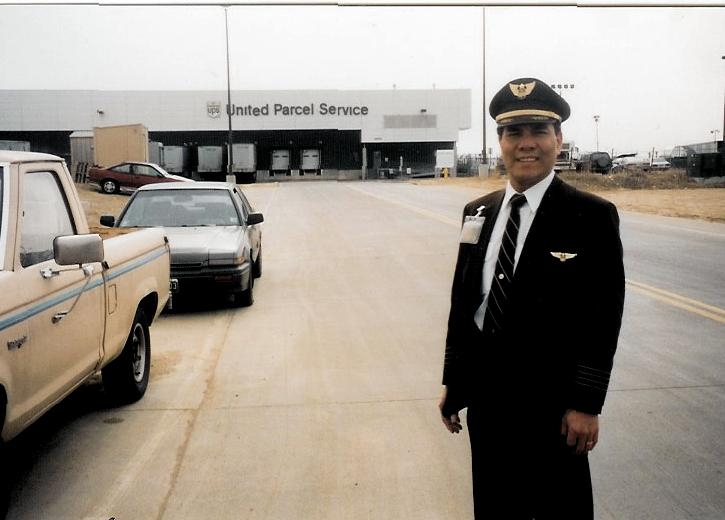
Captain Chau Phong started teaching US Air Force students in the 1980s and 1990s (Cre: Chau Phong).
In the US, all 12th-grade students have a career orientation week. Schools often invite experts from different fields and industries to share with students about their work and future directions. They often get excited when hearing about the job of pilot.
Having taught at VNA for the past four years, I have had the opportunity to share about the challenges, emergency situations encountered when flying, as well as my experience and knowledge to students. MCC theory is very intense with the whole course wrapped up in just 6 days. Teachers must be very devoted to help students acquire knowledge. English is the required language to deliver then course so lectures are not taught in Vietnamese, hence it is important to make sure all students can understand the knowledge.
Before signing up for MCC, which courses do students have to complete and what rules do you set for students in your class?
I ask them to be serious and passionate. Only when they love the sky will they be interested in and willing to cultivate knowledge. Before signing up for my class, students must complete the ATP theory class, have PPL (private pilot license), CPL (commercial pilot license), IR (Instrument rating) licenses. By completing these courses, the trainees were equipped with the knowledge and the ability to fly small airplanes. Before the pilots fly commercial aircraft, they need to be trained in the in-flight crew environment and that is the content of my MCC course.
Can you share more details about the learning objectives of your subject?
I teach about coordination with the flight crew. A real flight must include a captain, co-pilot and 4 flight attendants. Aviation jobs have many areas and many related tasks. For example, on the ground, we have members who transport the food, who carry food to the airplanes and who arrange the seats for passengers. All these tasks must be coordinated smoothly. After coordinating with the ground department, when the aircraft is boarded, the captain and the co-pilot must coordinate with each other in flying the plane. That is the purpose of the subject.
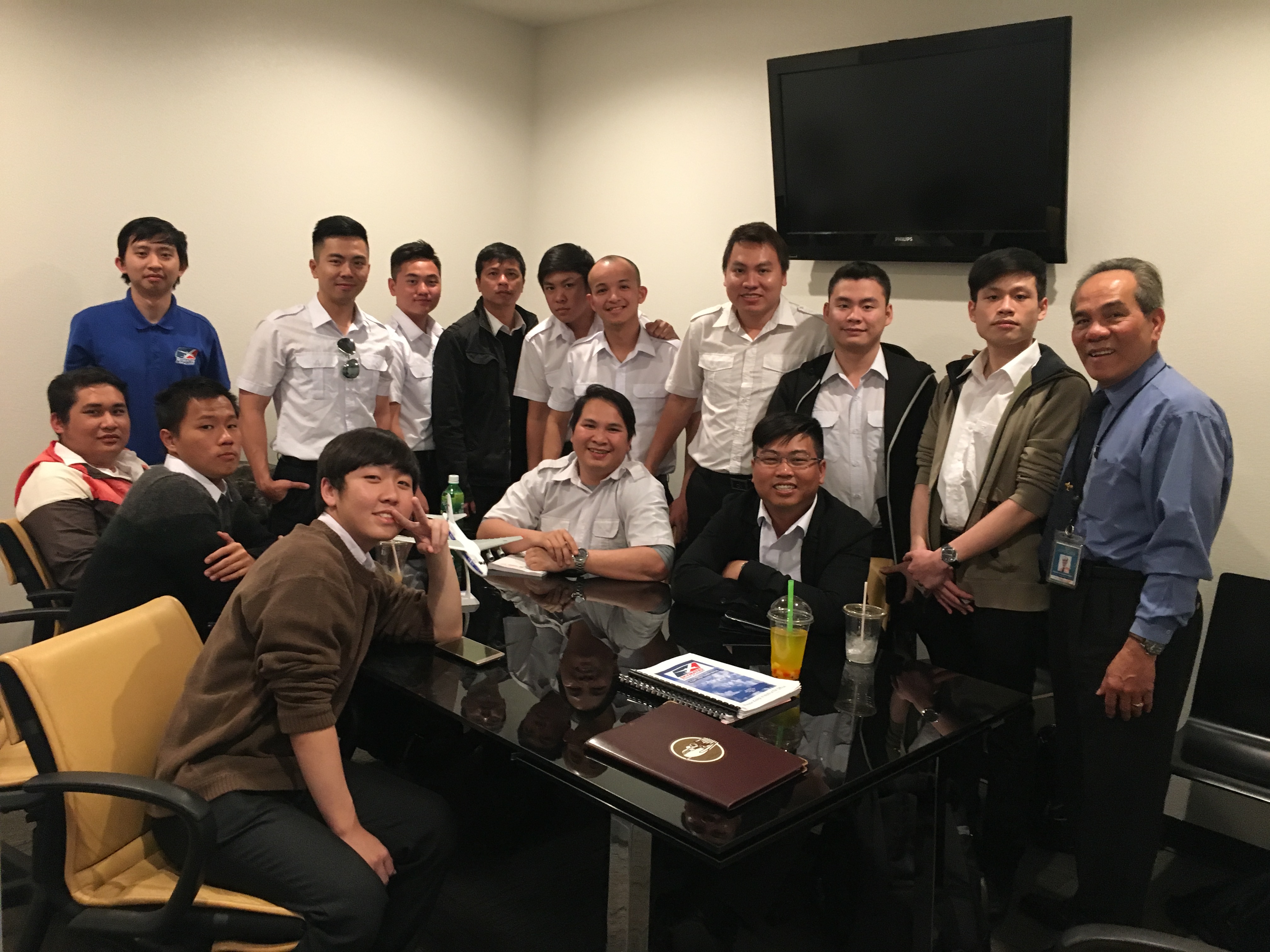
Currently, he is teaching about coordination with the flight crew (Cre: Chau Phong).
After students complete this class, they are basically ready to work in a team. Flying skills no longer matter here, what’s important is that the whole crew knows how to work together to get the job done, know whom to contact to bring the plane and passengers from point A to point B safely.
For students, which lecture is the most difficult?
The most difficult lecture is to fly by equipment, meaning flying in a situation that they cannot see anything outside and fully depend on the dashboard to navigate and decide where to go and how to land. It is very difficult. This is something students are not familiar with, so they need to learn it in stages.
When training pilot students, I always tell them real stories to make the lessons more lively and interesting and help them easily visualize the situations. In reality, not everything goes according to the theory, so when things go wrong, they have to find a solution by themselves.
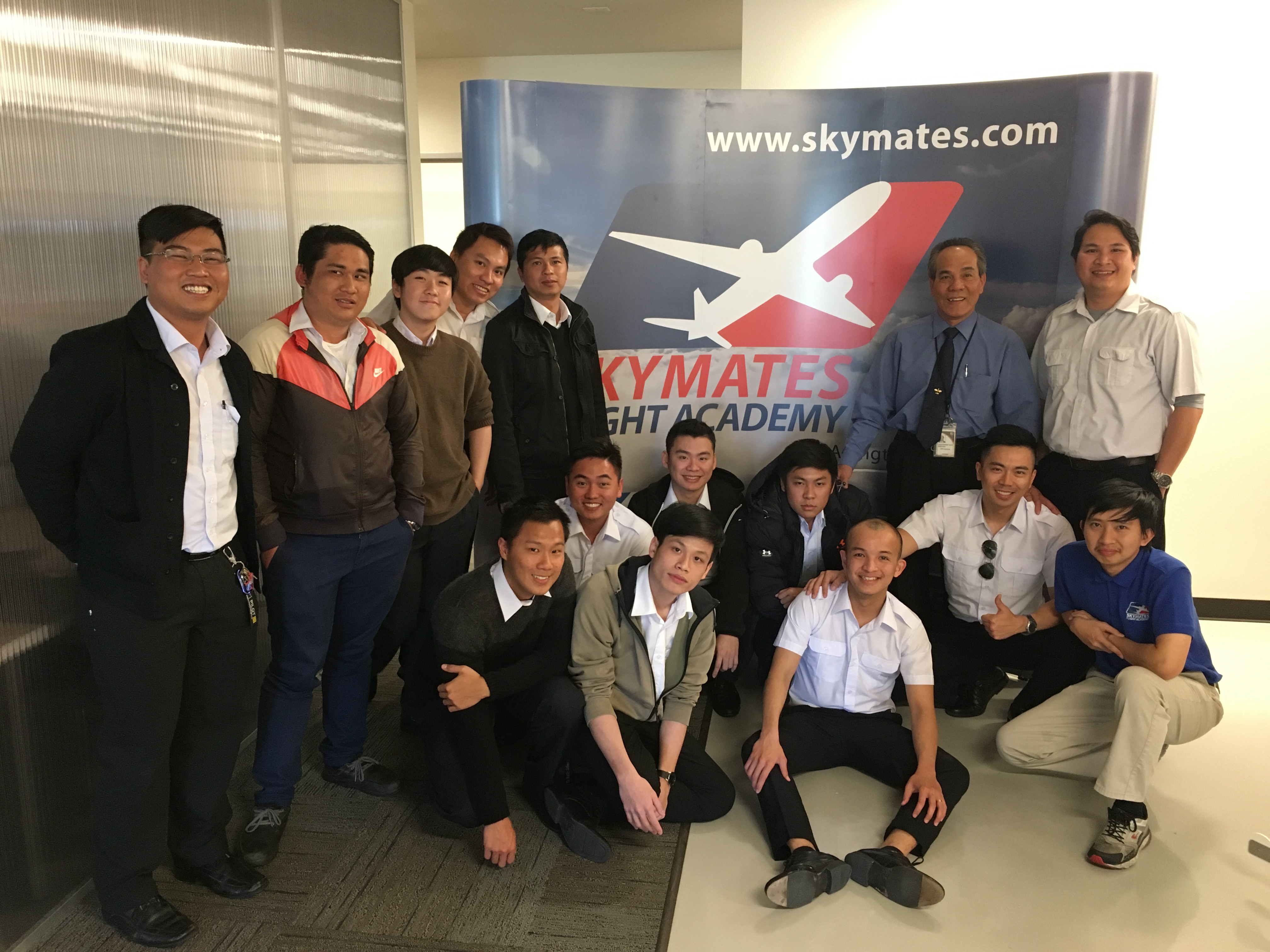 “I always tell my students to treat airplanes as their lovers and be gentle to them. “. (Cre: Chau Phong).
“I always tell my students to treat airplanes as their lovers and be gentle to them. “. (Cre: Chau Phong).
Many argue that women are not as good as men at mastering the sky. What do you think about this argument?
I disagree with that view. The importance is the strength and physical ability of each person. Women are meticulous and careful, they can master the sky even better than men given good physical strength. The first thing I often teach my students is that they need to have “a sharp mind in a strong body”. Either men or women need good physical strength.
I am taking myself as an example. Every day, I wake up at 4:00 AM., then I run for two hours. At 6:)) AM I wash and go to the airport. Pilot students should develop that habit from now. They need to do training to have good strength, rather than just getting in a plane and fly it away. For example, if you cannot sleep at night and have to fly in the morning, your mind cannot be sharp to control the plane. Flying from A to B is not always smooth, there are many situations that might arise during the flight. So when teaching, I always emphasize that gender is not an issue, what really matters is the physical strength.
Is there a lot of difference between teaching male and female pilots?
A lot. Men and women have different ways of thinking. Men are masculine while women are gentle. For example, my youngest daughter is now 29 years old. She learned martial arts from a young age, attended aviation school at 16 years old, then became a pilot cum martial arts trainer at the age of 23. She has her own way of thinking, which is both strong and gentle.
In the same situation, I can be harsh with the boys but have to be more sensitive with the girls, to avoid hurting their feelings. In the US, teachers must be very careful about what they say because jokes can easily be associated with sexual verbal abuse. Girls are not as strong as boys so I have to be careful.
I often teach my students to voice their opinion, defend their standpoint and bravely admit when they do not understand. Currently, the number of female pilots in the world is still very limited, so it is necessary to encourage women to pursue pilot careers to balance male and female in this industry.
How do you evaluate the ability of Vietnamese pilots compared to international pilots?
Regarding skills, Vietnamese pilots are very good, not inferior to anyone. They only need more experience to be able to carry all tasks related to aviation, helping Vietnam aviation to develop more and more. It is my wish and the teachers need to train them to be good pilots who always operate aircraft safely.
What are your feelings about celebrating Teacher’s Day in Vietnam?
There is no Teacher’s Day in the US, so teachers like us have no occasion to be honored and praised like in Vietnam. So I really like the Vietnamese culture. Students here always say “Hello, teacher” and bow their head solemnly when they see me, while the US usually just say “Hello” and never use the term “teacher”. Once, a pilot who wore three stripes on his shoulders (the very high rank of a pilot) saw me, he got off his car and bowed his head saying “hello teacher”, even though I never taught him. I was very honored and proud.
Teaching at VNA for 4 years, I have received a lot of flowers and memorable wishes every year. I am very happy. I often tell other teachers that we need to give all our hearts and soul to impart knowledge on the next generations.
How is your family life when you teach in Vietnam?
My family is still residing in the US. After retirement, I still want to contribute, so I come back to Vietnam to work for VNA and fly back and forth between the two countries regularly.
I got married at 27 years old, a few years after I came to America. At first, my wife did not like my job, because I was away from home too often. But gradually she understood that it was the nature of my job and became sympathetic. That is the requirement of this profession. You have to be away not only for 1-2 days but 5-10 days, sometimes up to the whole month.
In the past, there were no internet, phone or viber, so communicating with families was very difficult. Every time I flew to a country, I bought mobile cards when arriving at the hotel to call my wife and children. My three children (two girls, one boy) were taken care of by their mother and taught by me over the phone. All three graduated from university. Apart from my youngest daughter who became a pilot like father, my two sons are working in finance and banking in the US.
My daughter and I still talk every day, about work and life. She often tells me about the situations she met when flying and how to deal with similar ones. I will then share my experience with her.
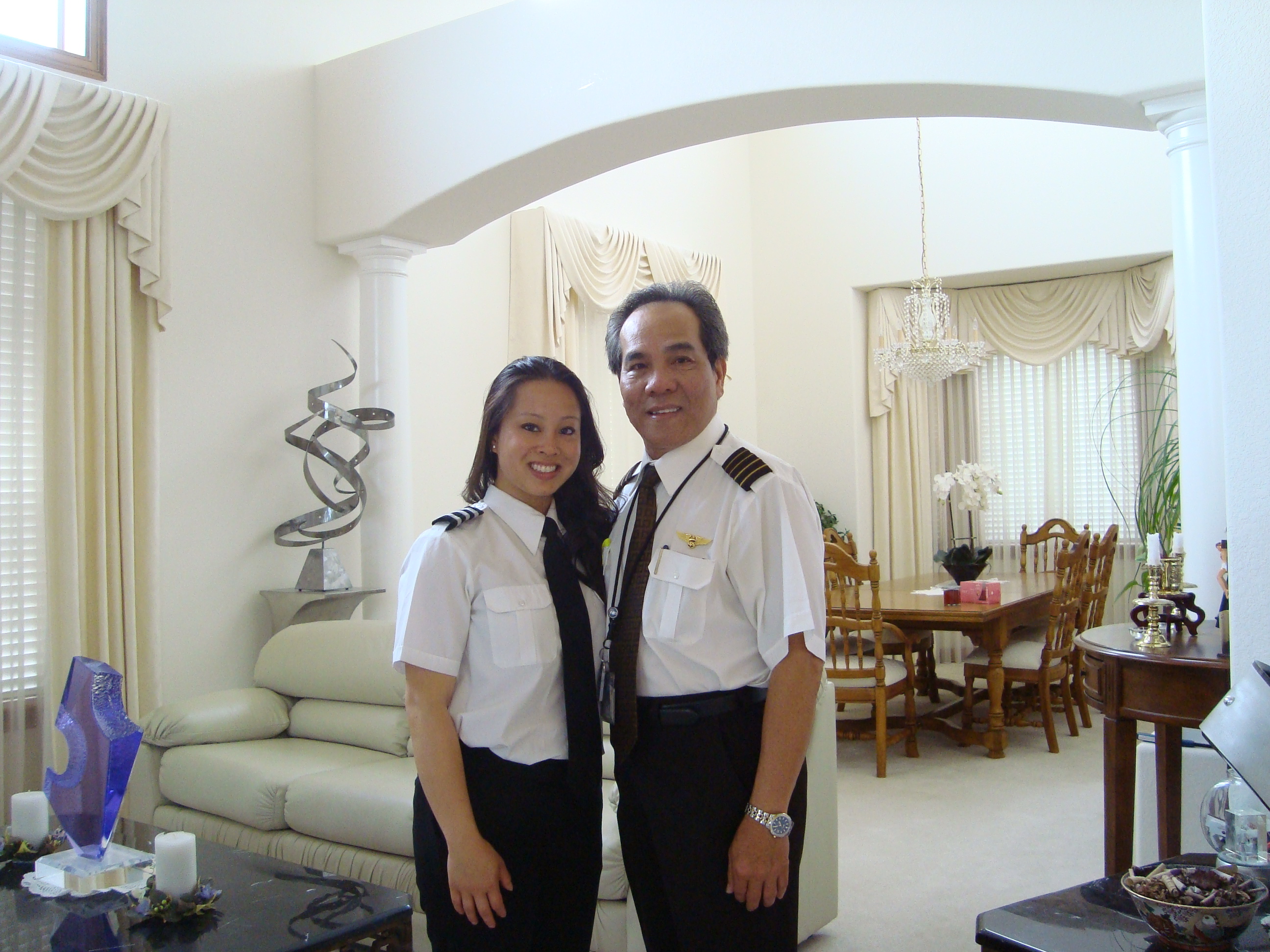 The youngest daughter of teacher Chau Phong followed her father’s profession as a pilot. (Cre: Chau Phong).
The youngest daughter of teacher Chau Phong followed her father’s profession as a pilot. (Cre: Chau Phong).
What are your wishes and future plans?
I hope that in the near future, all positions of captain and co-pilot of the aviation industry will be held by Vietnamese people, not by foreigners.
As for myself, my love for the sky and the pilot profession is still like on the first days. While health permits, I will continue to teach students. Otherwise, I will rest and travel. Vietnam has many beautiful landscapes and I have not had the opportunity to explore them all. I have always wanted to visit the Northwest but cannot find the time because of the teaching schedule. In the future I will definitely go there.
Nguyen Mai Huong-COMM






